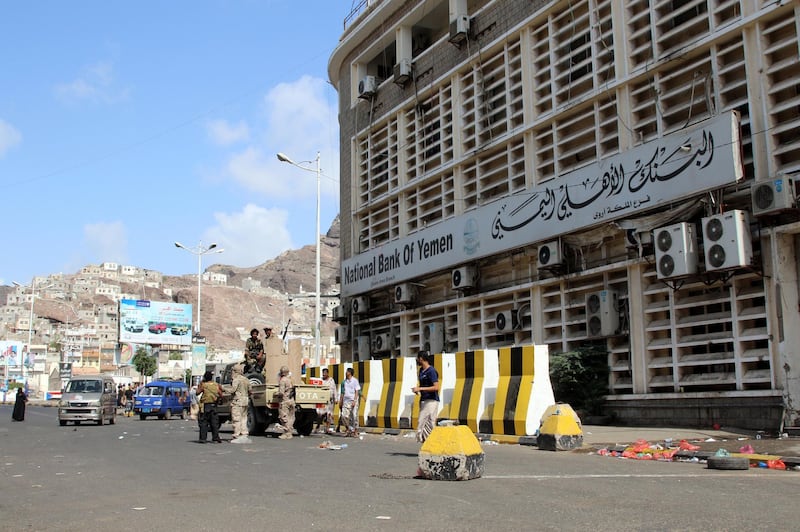Yemeni president Abdrabu Mansur Hadi appointed former finance minister Mohammed Zammam as head of the central bank, reported the state-run Saba news agency.
Mr Zemmam, 53, will be replacing Munaser Al Quaiti, who had been criticised and accused of mismanagement, reported Al Arabiya.
The nearly three years of war between the internationally recognised government of Mr Hadi and the Iran-backed Houthi rebels has taken a toll on Yemenis, many of whom can no longer afford basic commodities.
The country’s currency, the rial, has lost more than half its value against the dollar.
King Salman of Saudi Arabia ordered in January a deposit of $2 billion to be paid into Yemen's central bank to prop up the weak currency and help alleviate the suffering of the people.
____________
Read more
Arab coalition to give $1.5bn in Yemen aid
Yemen government announces first budget since war began
____________
Meanwhile, in the Bayda province in central Yemen, a drone strike killed six suspected Al Qaeda militants on Sunday, a security official said, according to AFP. The US military is the only force known to operate armed drones over the country.
"An unmanned drone — likely American — bombed the group's vehicle in the area of Qayfa, where Al Qaeda is active," the official said on condition of anonymity.
Al Qaeda's global network remains "remarkably resilient," posing more of a threat in some regions than ISIL, UN sanctions monitors said on Wednesday.
Yemen is the world’s worst humanitarian crisis, where 8.3 million people are dependent on food aid, according to the UN. The civil war has pushed the country to edge of famine with outbreaks of cholera and diphtheria.
A Saudi-led Arab coalition — which includes the UAE — intervened in Yemen in 2015 on behalf of the legitimate government to push back the Houthi rebels, who still control the capital, Sanaa, and large areas of the country’s north.
The UN said in 2016 that the war had killed an estimated 10,000 people, displaced more than two million and pushed the country to the verge of famine. No new casualty figures have been released since.





